| Catharina Sadde's
fantastic but tiny debut vintage sold out almost
instantly in Europe, but we've been lucky enough
to secure a small allocation. You won't want to
miss these. Limited quantities, allocation rules
may apply. |
|
| View online | |
| BURGUNDY 2019 • IN STOCK |
| Les Horées |
| The inaugural vintage of a rising
Burgundian star |
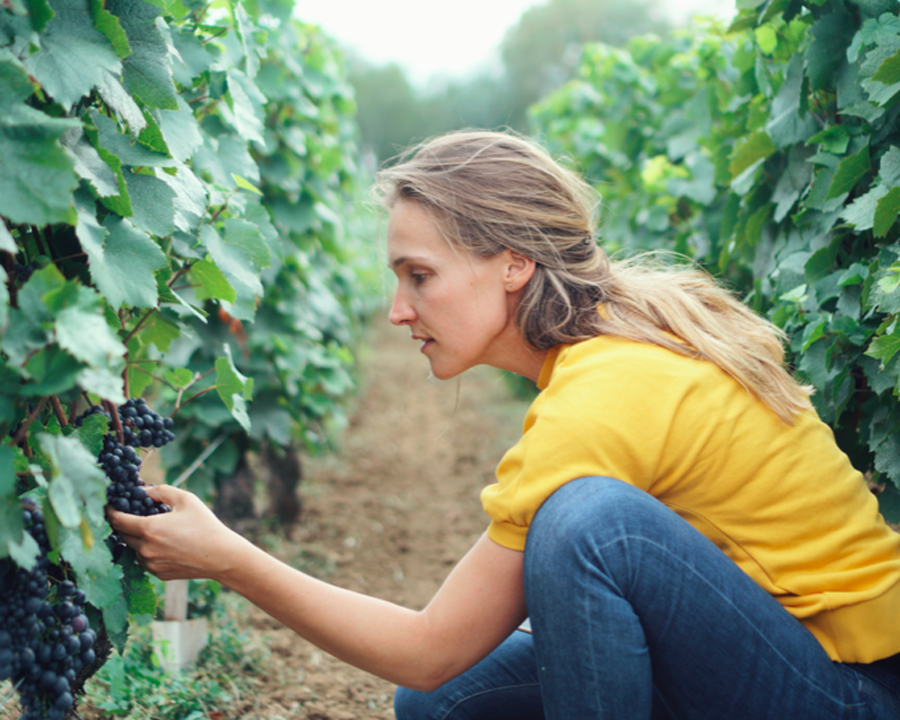 Catharina Sadde of Les Horées |
| While Sadde’s
appellations are modest, the wines she’s producing
are anything but, combining soaring aromatics,
supple tannins and sumptuous textures to striking
effect. — William Kelley, The Wine Advocate |
|
| Burgundy has a long and venerable
history, with no shortage of established legendary
producers making wines from its hallowed grounds.
Yet, there is an exciting new generation of
winemakers quietly making waves. |
One of the newest is the young Catharina Sadde,
who sold out almost instantly in her first official
vintage, 2019. Make no mistake though – Catharina is no
novice: she has a resumé that would be the envy of any
aspiring winemaker, with stints at Domaine de la Romanée
Conti, Drouhin, Comtes de Vogüé, Marquis d’Angerville
amongst others.
Catharina categorises her winemaking style as “low-intervention”. Making crystal-clean wines is of utmost importance to her, along with showcasing the special nuances of Burgundian terroir – the reason she fell in love with Burgundy in the first place. In our view, she’s achieved that with astounding success.
In our tastings of her inaugural vintage, we found the more easygoing Coteaux Bourguignons and skin-contact aligoté exuberant and brimming with joie de vivre. Her Pinots, on the other hand, are serious, deep wines that possess huge potential for aging. They combine sensual, concentrated fruit with silky, fine-grained tannins. Colour us impressed.
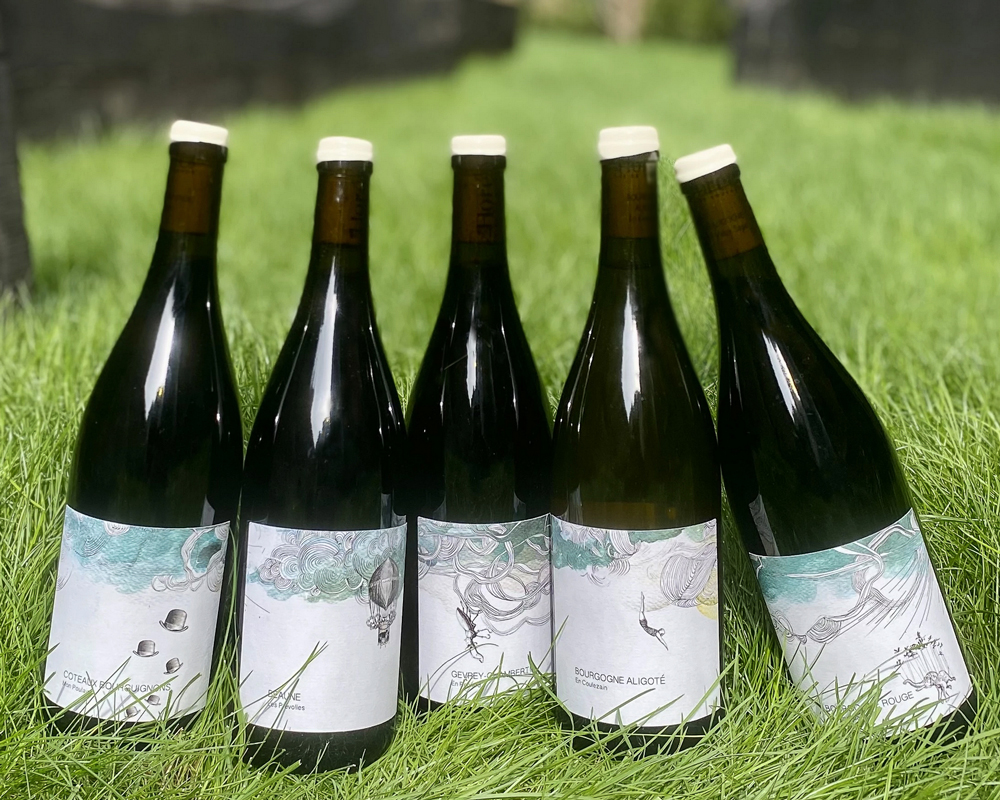 Photo credit: Flatiron Wines |
A bona-fide epicurean, Catharina had originally planned
on a culinary career. She started off studying gastronomy
and working in several top restaurants in her native
Germany before finding her true calling in wine.
She wasted no time in pursuing her new passion with aplomb, completing a degree in viticulture from Germany’s most prestigious wine school, Geisenheim; then a masters in Montpelier; swiftly followed by an internship at Domaine de la Romanée Conti. She then worked at a succession of renowned Burgundy estates: Domaine des Epeneaux, Comte Armand, Drouhin, and Domaine Comte Georges de Vogüé. Most notably, she was head of viticulture at Domaine Marquis d'Angerville, and was Cecile Tremblay’s second-in-command in Vosne-Romanée for three years. All of this is to say: Catharina is certainly not one to do anything in half measures.
In 2018, she was offered a small plot of vines in Beaune.
This was followed by a few more in Volnay and Pommard in
2019. It was then that she and her husband Guilhem, a
Dijon native, decided to pour all their efforts into
making their own wine – and thus, their domaine was born.
She named it ‘Les Horées’, a beautiful and soulful
name inspired by the ancient Greek celebrations during the
changing of seasons: the Greek goddesses of the seasons
are known as “Horae” (hours). The name pays tribute to
Catharina’s deep connection with nature, an ethos that is
infused throughout all of her work.
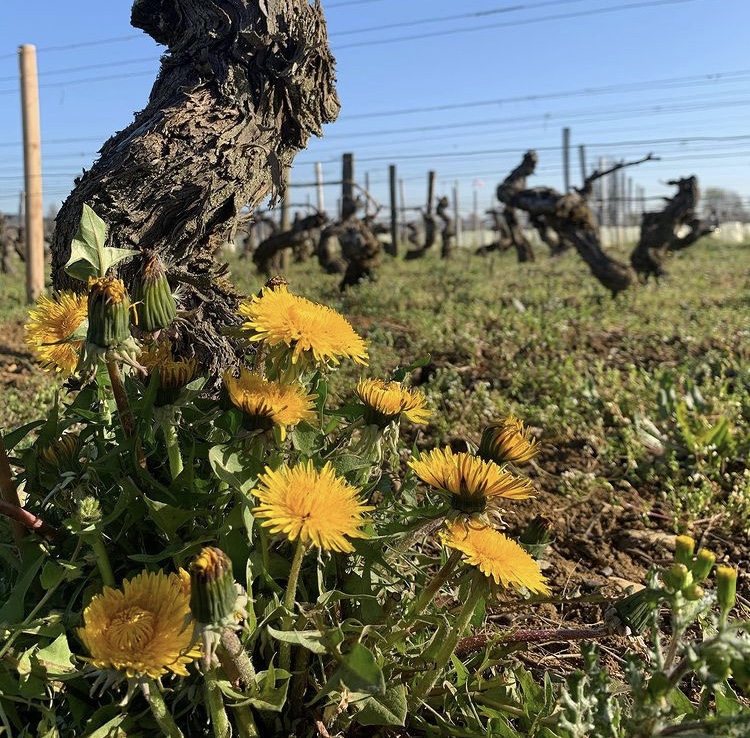
Les Horées’ old vines in spring
(photo credit: Les Horées)
|
Many of the domaines at which Catharina previously
worked were pioneers of biodynamic farming, and this is an
area of passion for Catharina as well. She and her husband
do everything in the vineyard by hand, and for now, while
the domaine is small, by themselves too.
Like many of our favourite producers, she believes that
purely manual and natural vineyard care is the basis for
fully ripe and healthy grapes, and that healthy grapes in
turn will produce great wine. Of course, like many other
young Burgundian producers, Catharina’s own holdings are
modest. For now, she supplements their ‘micro domaine’
with grapes purchased from trusted growers, but intends to
slowly reduce the fruit she purchases and work only with
grapes she farms herself.
| I was
particularly impressed by her mastery of whole-bunch
fermentation that at this address contributes all of
the exotic spice and powdery tannin of which it’s
capable—but none of the herbaceous character or
structural asperity that it can bring in the wrong
hands. — William Kelley |
|
An astute and careful winemaker, Catharina has perhaps a
bit of a perfectionist streak. No effort is spared to
achieve the structure, style and quality she desires in
her wines.
In 2019, she made a single white cuvée with Aligoté – a
grape she herself adores – and used a small amount of
skin-contact to bring out the character of this
lesser-known Burgundy white grape. For the reds, both
pinot and gamay, she partially destems the grapes,
painstakingly cutting away the thick central stems by hand
to avoid the coarser tannins that they bring, while
retaining the finer stems for structure. The grapes are
then left to ferment in an open vat on their own yeasts.
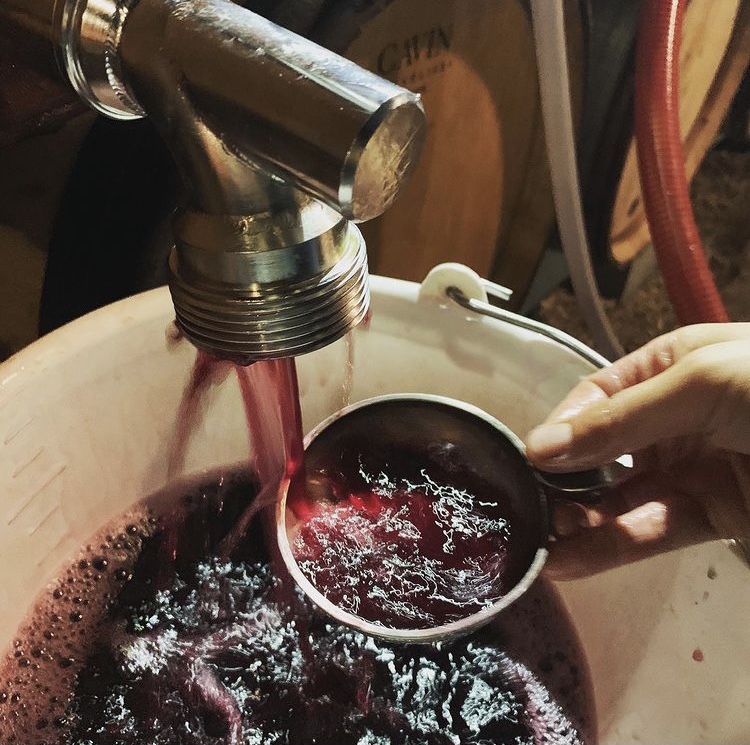
Soutirage of the 2019s (photo
credit: Les Horées)
|
Catharina believes that it is these particular wild
yeasts that are ultimately responsible for the minerality
and complexity of the wines. She prefers to gently wash
over the must, supported by a few gentle foot-powered pigeages.
She is also very judicious with sulphur use, adding only
tiny amounts after malolactic fermentation is complete.
The wines are matured exclusively in used barriques, where
the wines can mature and develop without taking on a
noticeable wood aroma.
The rigorous attention to detail extends not only to her labels (which are works of art in their own right), but also to the corks she uses, which come from old cork-oaks that grow in a nature park near Lisbon. They’re particularly hard and dense, and are treated only with beeswax that is carefully hand-applied on the outside. It is this scrupulous attention to every small element that separates the good from the great. Her star is surely set to rise: it is only a matter of time before the rest of the world catches on to these spectacular creations.
| Sadly,
quantities at Les Horées are tiny, and nor are they
likely to substantially increase in the imminent
future, but I encourage readers to make every effort
to secure a few bottles from this immensely exciting
new project. — William Kelley |
|
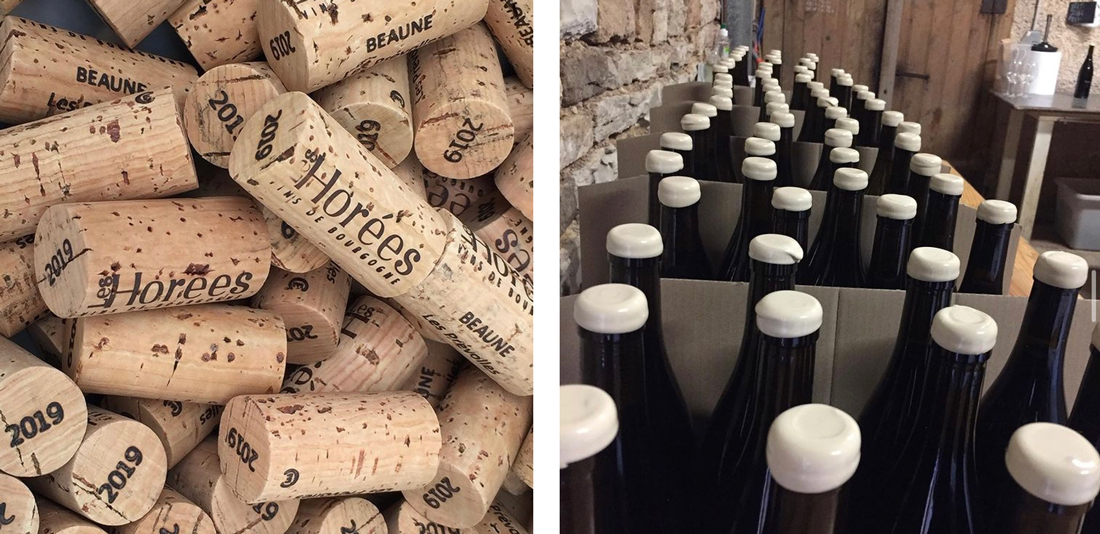 |
| Catharina’s debut vintage in 2019 was
fantastic, but came in very, very small quantities.
It sold out almost instantly in Europe, so we are
extremely honoured, and fortunate, to be able to
bring some to our shores. Needless to say, we only
have a tiny parcel of these captivating wines – they
will not be around for long. |
The offer is valid until 3 December 2021. Orders will be processed subject to availability and final written confirmation. Some wines have restrictive supplies, so please understand that we may have to allocate them in order to ensure as equitable a distribution as possible. Full payment is required no later than 7 days after confirmation invoice is sent in order to confirm the purchase. All terms and conditions apply.
| - OFFER VALID ONLY UNTIL
3 DECEMBER 2021 - PRICES ARE QUOTED NETT in SGD - ALLOCATION RULES MAY APPLY - SUBJECT TO FINAL WRITTEN CONFIRMATIOn - CONFIRMATION MAY TAKE 1-2 WORKING DAYS |
| White |
 |
|||||
|
| Red |
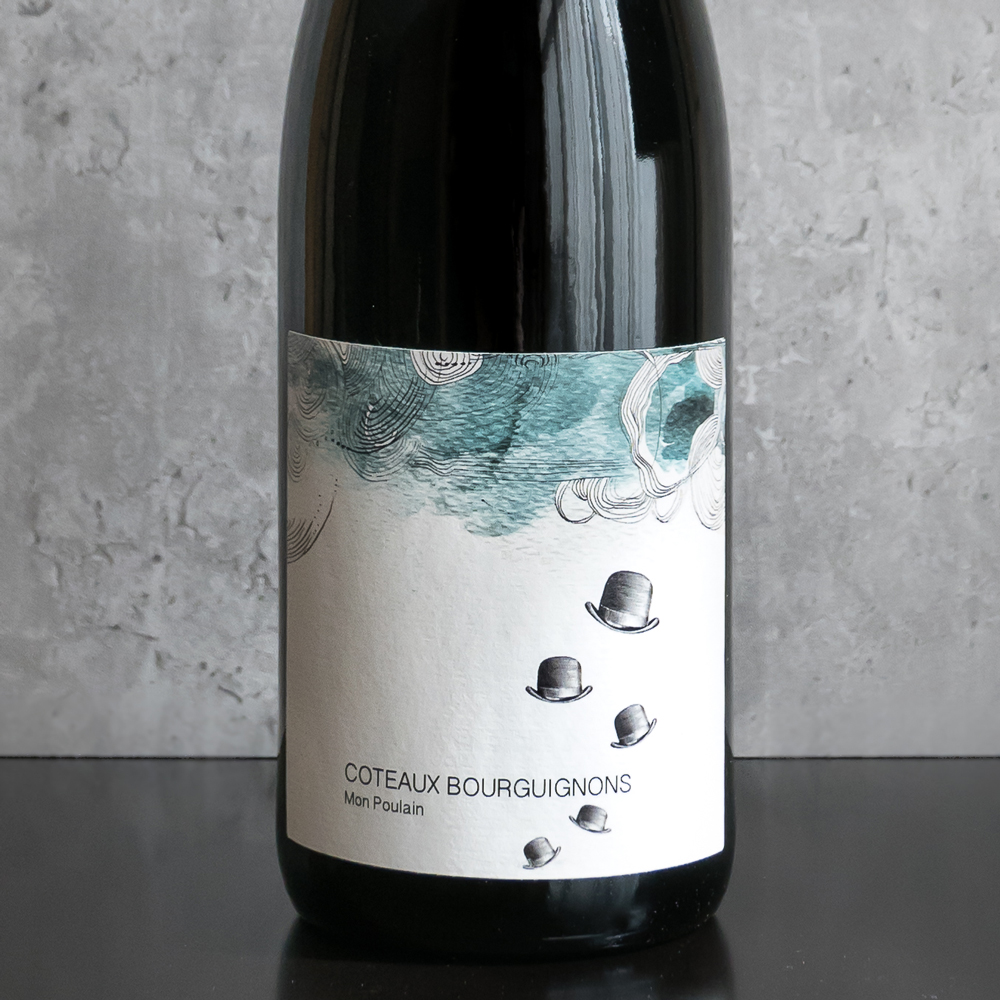 |
|||||
|
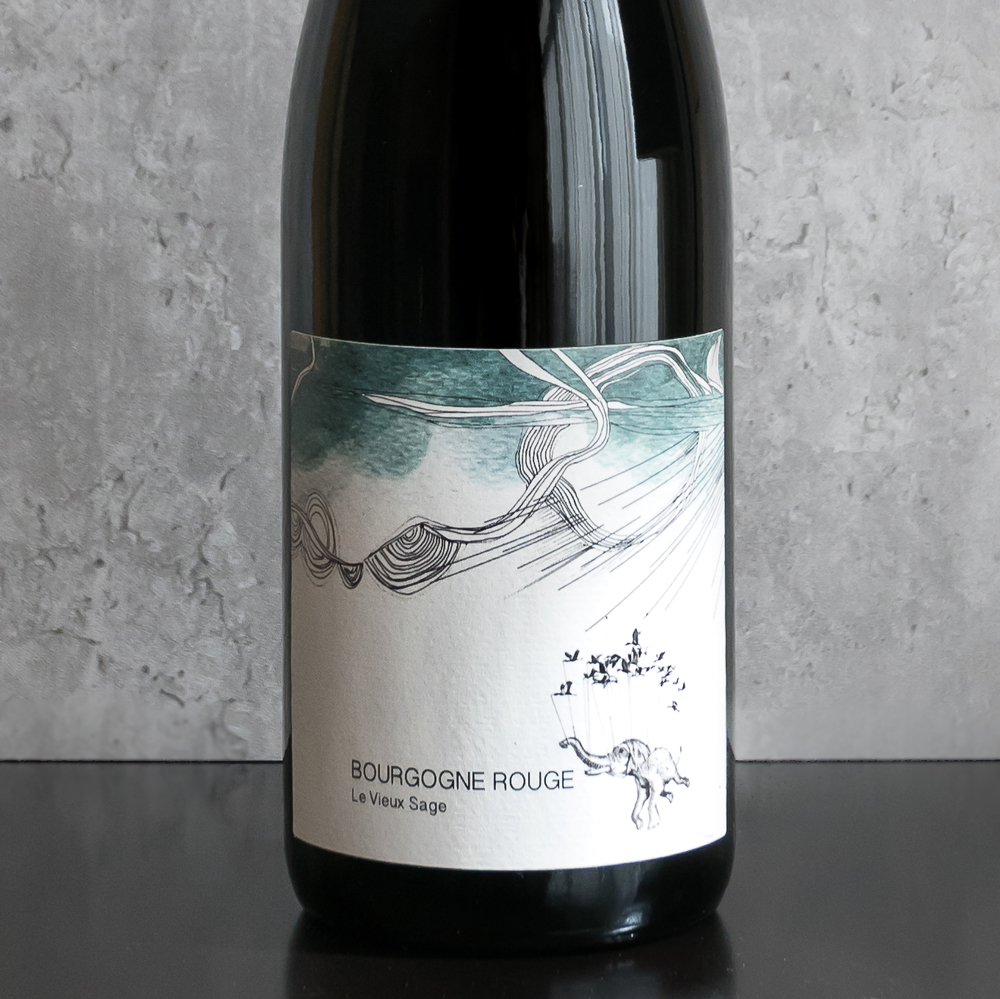 |
|||||
|
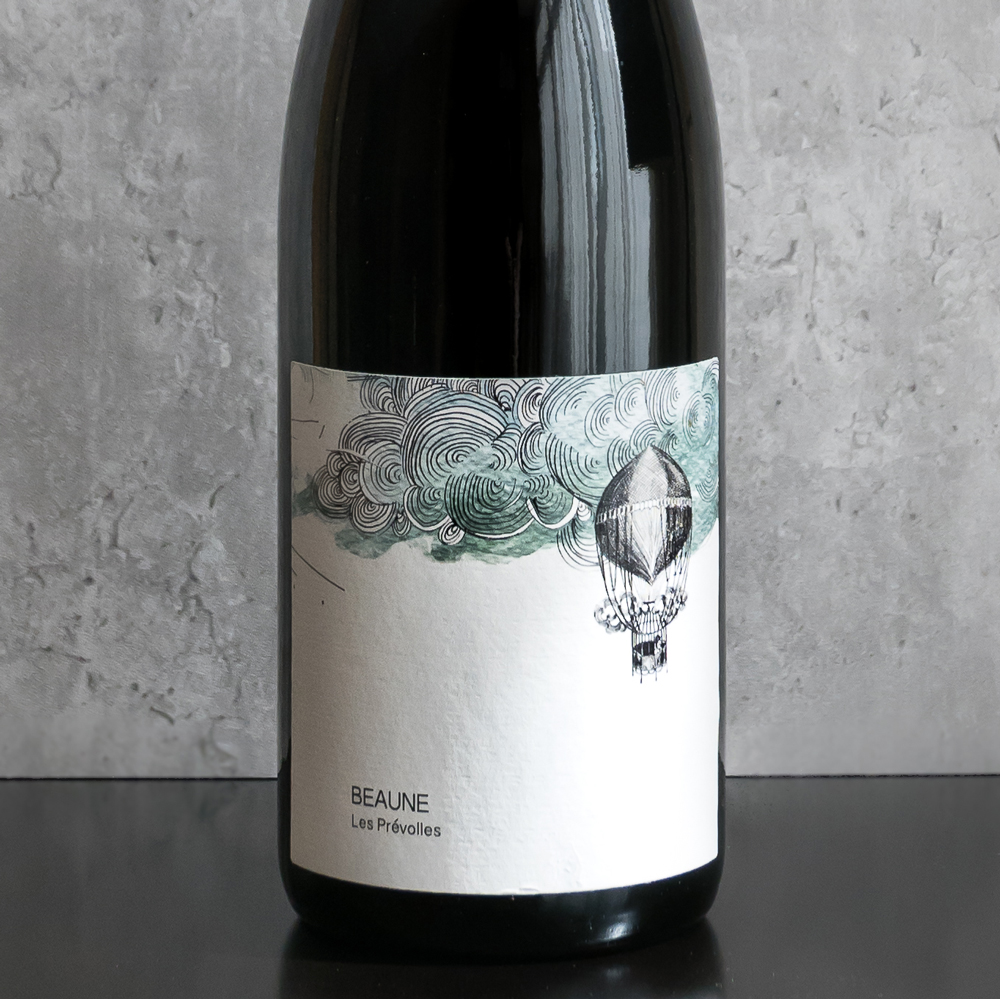 |
|||||
|
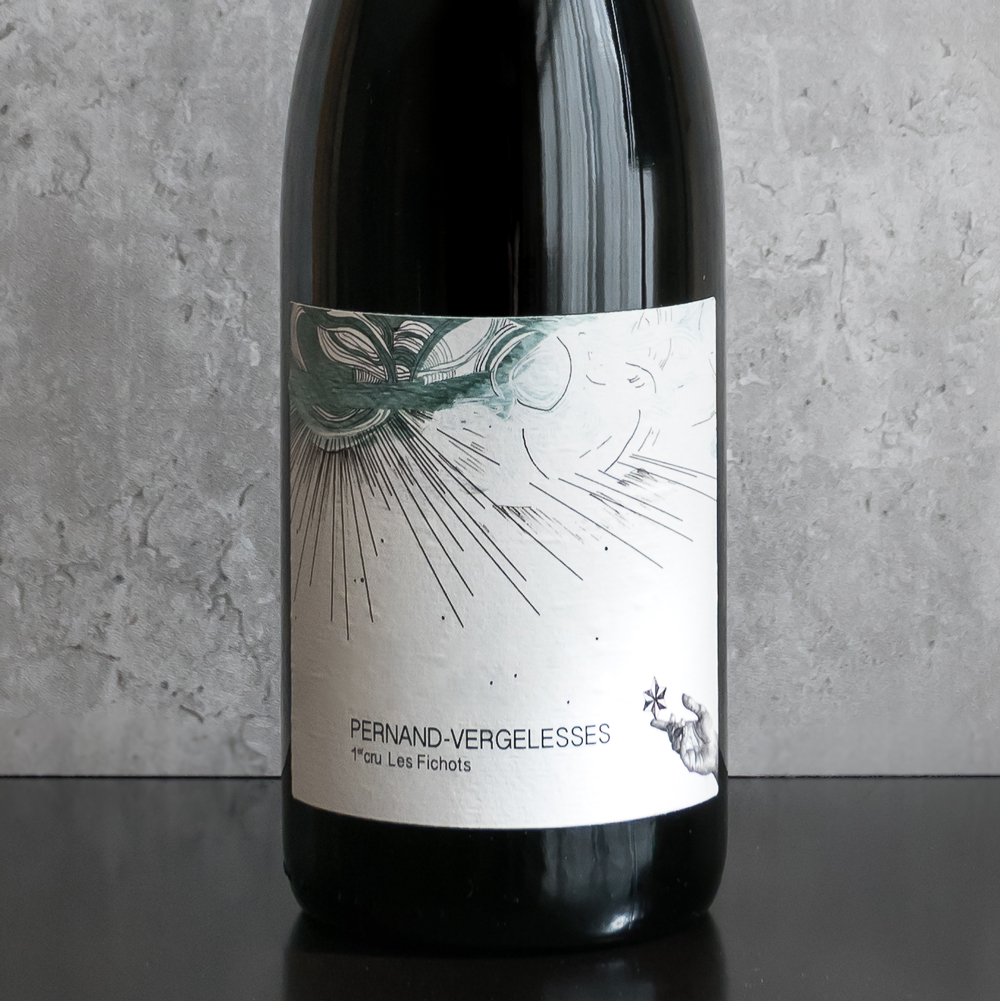 |
|||||
|
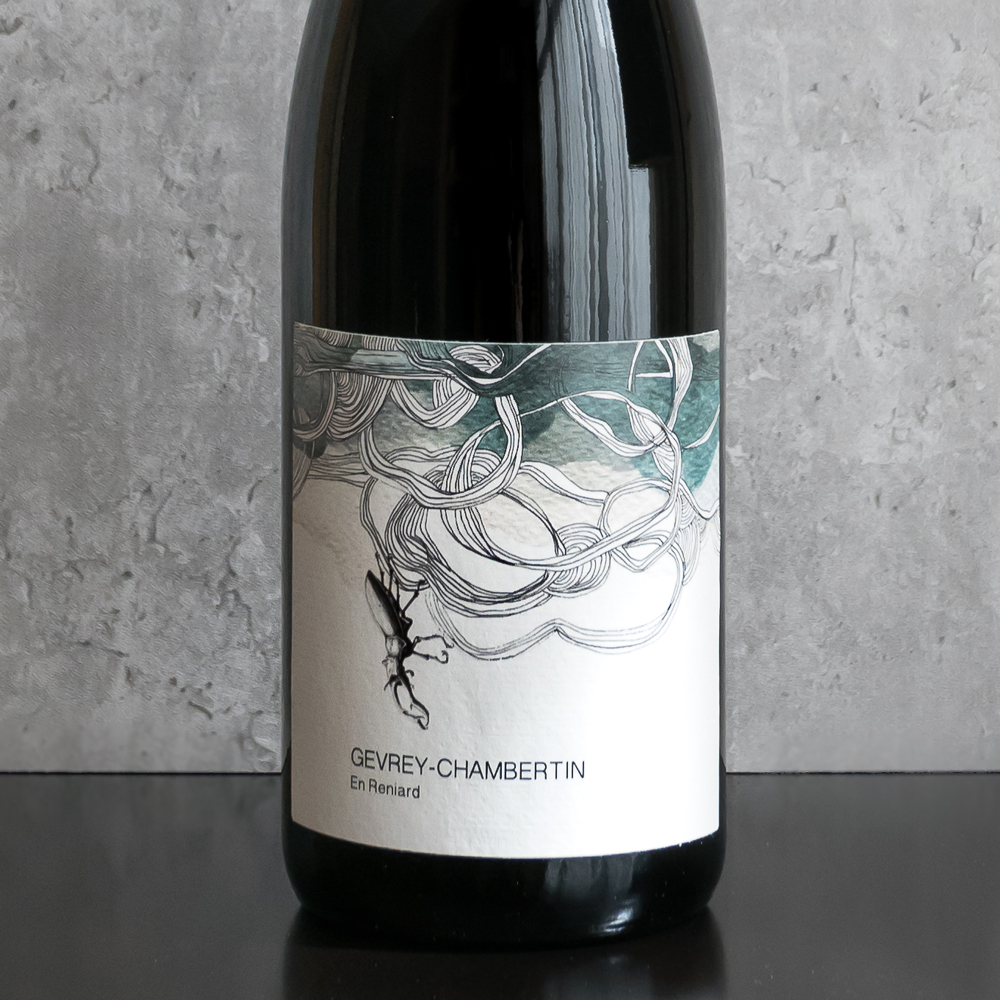 |
|||||
|
TERMS
& CONDITIONS
|
100G Pasir Panjang Road #06-16/17 Interlocal Centre Singapore 118523 t +65 6838 0373 f +65 6836 0036 e sales@artisan-cellars.com w www.artisan-cellars.com |
 |